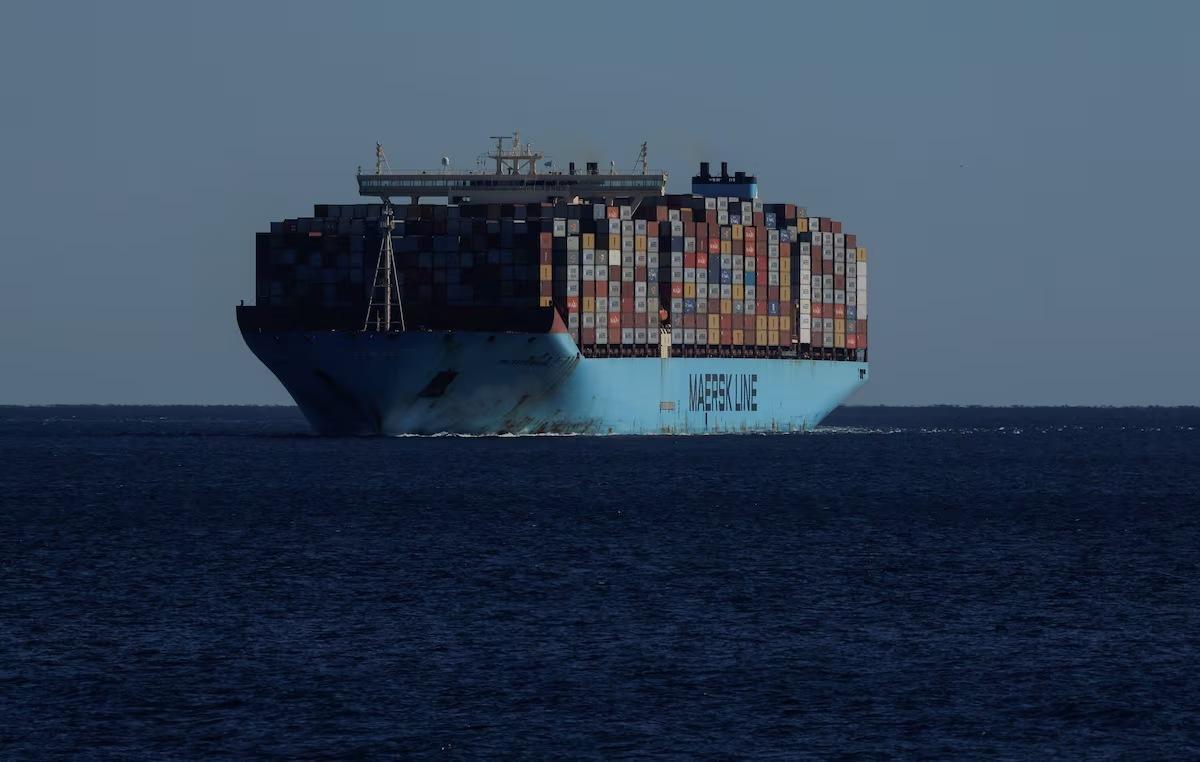Adani Ports and JSW Infrastructure, India’s leading private port operators, are expanding their logistics services to capture extra cargo while they run integrated transport services.

Photograph: Jon Nazca/Reuters
“With incrementally less availability of lucrative port assets that can drive cargo volumes, port operators have naturally shifted their focus on deriving value in the upstream integration, i.e., the logistics space.
“The synergies being derived through end-to-end service capability for importing or exporting cargo, along with handling of the domestic cargo, are driving port operators to invest in building hinterland assets,” said Varun Gogia, assistant vice-president & sector head, corporate ratings, Icra.
Adani Ports and Special Economic Zone (APSEZ), India’s top private port operator, has 12 multimodal logistics parks (MMLPs), 132 rakes, more than 3 million square feet of warehousing space, around 6,000 containers, and 937 trailers and tipper trucks.
It has 18,250 hectares of industrial land and is building a bank of over 1,528 acres at various industrial clusters, which are integrated with hinterland logistics (like rail and road).
APSEZ’s management, in earnings’ call for Q4 FY25, said it aims to become an integrated transport utility company.
The company has a truck-management platform and a freight-forwarding business.
“These are capitalised businesses. They come with very high return on capital employed (ROCE),” said D Muthukumaran, chief financial officer (CFO) of APSEZ, adding that growth in logistics is likely to be inorganic (business growth from acquisitions).
JSW Infrastructure (JSW Infra) acquired a majority stake in Navkar Corporation, a logistics firm, for Rs 1,644 crore in FY25.
Lalit Singhvi, whole-time director and CFO of JSW Infra, told Business Standard earlier the company is looking for more inorganic opportunities in logistics and has submitted bids to the National Company Law Tribunal for acquisitions.
JSW Infra has two Gati Shakti Cargo Terminals (GCT) and plans to participate in more such opportunities to build a nationwide logistics network of 15-20 GCT centres in five years to have an “industry-leading ROCE”.
The company aims to use 100 acres of undeveloped land in Panvel, Maharashtra, and Morbi, Gujarat, for its logistics plans.
It seeks a logistics revenue of Rs 8,000 crore and a 25 per cent ebitda margin by FY30, led by adopting an asset-light model via GCTs, synergies with the JSW Group, opportunities in the logistics sector, and major cleanup in accounts, said analysts at Ellara Capital in a note. (Ebitda stand for earnings before interest, taxes, depreciation, and amortisation)
The logistics strategies of APSEZ and JSW Infra are a natural extension of their port businesses, according to experts.
The companies seek to earn more from customers by offering “end-to-end solutions”, improved port efficiency, and more cargo volumes.
Manish Goel, founder and managing director (MD) of Equentis Wealth Advisory Services, said, “APSEZ benefits from scale, a pan-India port presence, and early investments in multi-modal connectivity and warehousing, making it one of the few players capable of offering genuine end-to-end solutions.
“Meanwhile, JSW Infra leverages the group’s industrial backbone. With steady captive cargo and access to in-house infrastructure, it enjoys operational certainty and volume visibility—two critical ingredients in logistics.”
APSEZ’s FY25 logistics revenue grew 38.6 per cent to Rs 2,881 crore, while ebitda increased 18.9 per cent to Rs 642 crore.
Margins declined to 22 per cent from 26 per cent in FY24.
Expansion will reduce overall ebitda percentage but increase ROCE, the company said.
It has guided trucking revenue, which was Rs 428 crore in FY25, to grow at least three-fold in FY26.
JSW Infra reported a logistics revenue of Rs 250 crore and ebitda of Rs 41 crore in FY25.
It has guided FY26 logistics revenue to grow 50 per cent, driven by rake additions, terminals, and GCT initiatives.
The expansion plans of the two companies may have mixed financial implications as logistics is a low-margin business, experts said.
According to Vijay Agrawal, MD – investment banking at Equirus Capital, ports give ebitda margins of 60-70 per cent and ROCE of 12-17 per cent.
Logistics generates lower ebitda (15-25 per cent) and ROCE (12-15 per cent).
“For example, APSEZ’s logistics contribute 12 per cent of revenue but only 4 per cent of ebitda.
“JSW Infra is better positioned with low leverage and a 54 per cent margin at the group level, though logistics returns are yet to materialise fully.”
APSEZ plans a multi-year capital expenditure of Rs 20,000 crore to Rs 20,500 crore in land, new trucks, agriculture silos, trains, MMLPs, and warehouses.
JSW Infra has earmarked Rs 9,000 crore for expanding its logistics business between FY25 and FY30.
Goel believes that such huge capital outlays by operators is a risk.
“For APSEZ, logistics yields around 18 per cent ebitda margin — lower than core port operations. As capital intensity rises, this margin pressure could dilute overall profitability.
“The company’s net debt-to-Ebitda ratio is also expected to increase, adding to financial strain.”
There are challenges like a volatile trade environment, potential delays in land acquisition, regulatory clearances and scarcity of skilled human capital.
However, the experts believe the two companies’ logistics plans are worth it, as they are long-term investments with strategic methods of expansion.
Pratik Mundhada, director at India Ratings & Research, said, most port operators follow an asset-light model for positive impact on ROCE.
APSEZ and JSW Infra aim to use logistics for better cargo movement and eliminating middlemen and agents.
Agrawal, of Equirus Capital, believes the companies’ plans may dilute short-term returns, but are viable for the long term due to India’s logistics demand and policy support.
“These investments will yield results on an overall basis with increased throughput at the port, operational efficiencies, and top line.”
- Adani Ports and JSW Infra are top two private port operators in India, with cargo handling capacity of 810 mtpa
- Plan to go big with logistics with Rs 20,000-29,000 crore of logistics capex between FY25- 30
- To follow inorganic, asset-light growth model to provide integrated cargo transport services




